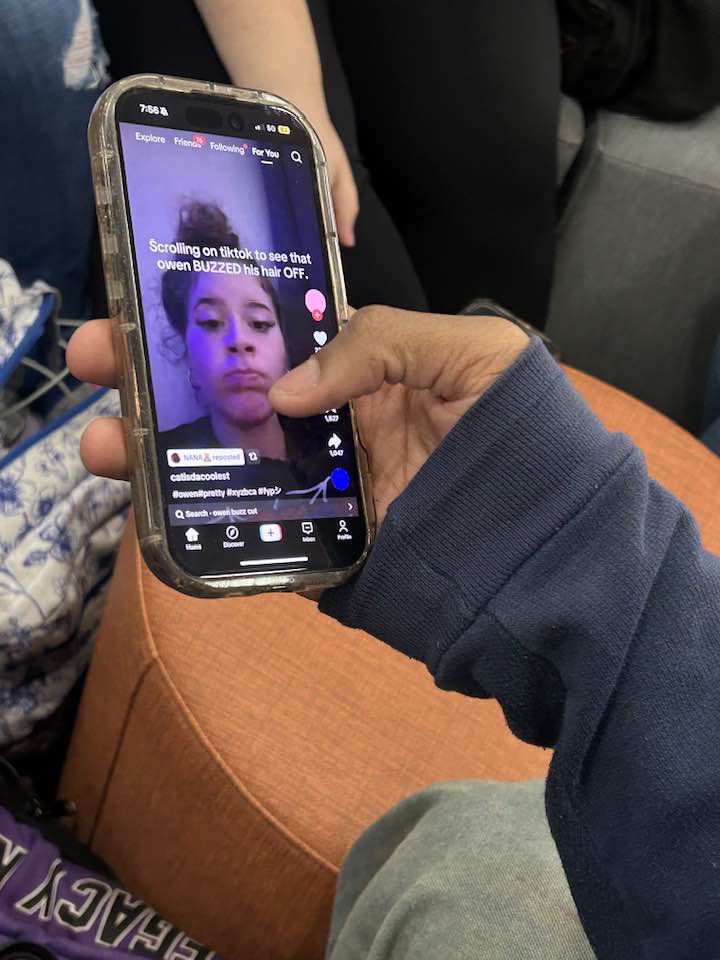Over the years, many shows have been put on by the Lincoln-Way West Theater Company with instant classics such as The Addams Family (2023) and Shrek the Musical (2022). But recently, some have noticed a startling idea peering out from behind the black curtain. Men in theater have started to dwindle. According to senior Oliver Fennesy, “Before I started here, I would come to shows and there would be a LOT of guys. However, now there’s really only a handful.” But this is not a new problem according to Mr. Venutolo who said, “We’ve always needed more guys.” In a survey titled, “Share of children aged 11 to 15 participating in the arts in England in 2019/20, by activity and gender”, 62.3% of girls participated in theater compared to 44.7% of boys, and there were similar numbers in all categories of the arts.
But why is this? Why is it that West has always needed more guys in theater? To sum it up in one word: stereotypes. Some believe that there is a social association between gender and theater. “I think some men are afraid of being emasculated or stereotyped for being in theater,” says sophomore Becca Steffanelli. As long as these ideas float around, the theater department’s male attendance will more than likely continue to suffer.
Conversely, some have hope for first-year students in the coming years. Junior Kay Buda writes, “Though we still have a relatively small number of men in our theater department, thinking back to my freshman year, I can count at least 5-10 more involved men in the theater company,” and “I feel like there’s a lot more advertisement and spirit for the department, as well as a lot more opportunities.” Kay has faith in the advertisements put out by the theater company’s Instagram and TikTok, saying “More people have been inclined to try out something they may not have considered trying without seeing our accomplishments prior.”
But why does any of this matter? This matters because a theater’s choice of shows can be directly influenced by who will act in them. The men in theater, or lack thereof, have the power to tilt the scales of the ratio of male lead roles to female lead roles. This shift is a slippery slope toward dropping male roles altogether. With less demand for male leads, there will be less of a draw for men to get their faces into the spotlight, which only tips the scales further. Some high school theater departments show this idea through their female-heavy musical choices such as Mamma Mia!, Little Women, and Mean Girls. These musicals often make the top ten lists of most popular musicals for high schools. “It helps that the musical (Mean Girls) based on Tina Fey’s popular movie had a successful Broadway run not too long ago, and that the cast is largely female. High school theatre programs often attract more girls than boys, ” according to KPBS Public Media.
What can be done? Some suggestions from an OnStageBlog.com editorial and the Independent UK were to introduce boys to theater at a young age, normalize boys in drama club, have enthusiastic teaching for the arts for young children, view role models of older male teens and adults, and change the types of roles available in theater to those similar to major film roles.
While the lack of men in theater may be the trend seen in many high schools, it looks much different on the big screen. “ Male characters in films continued to heavily outnumber female characters in 2021, according to the latest It’s a Man’s (Celluloid) World study from Dr. Martha Lauzen, executive director of the Center for the Study of Women in Television and Film at San Diego State University. A hefty 85% of films featured more male than female characters, the study found. Male characters outnumbered females by almost two to one, and just 31% of films featured sole female protagonists. Only 7% of films had more female than male characters, while 8% of films featured equal numbers of female and male characters.”
“A 2022 report found that 38.6 percent of lead actors in films in the United States that year were female. “ And women still earn less than men in Hollywood.
So are men in theater dying out? That answer is up for interpretation. Yet this issue may become a crisis if we are not carefully watching and are vigilant enough to destigmatize theater for men in years to come. For so many, theater is the only place where they can truly be themselves. Why should they exclude some?







